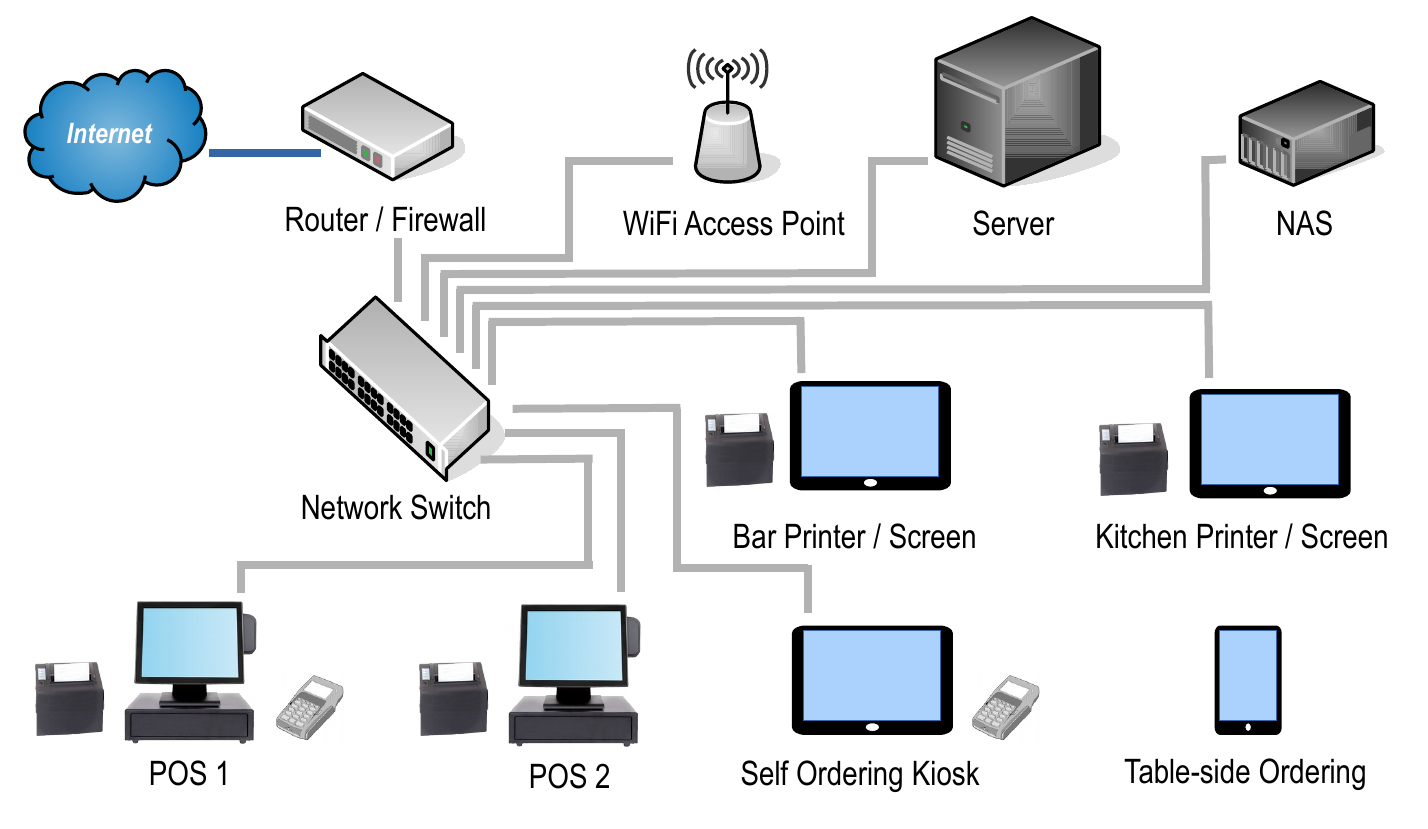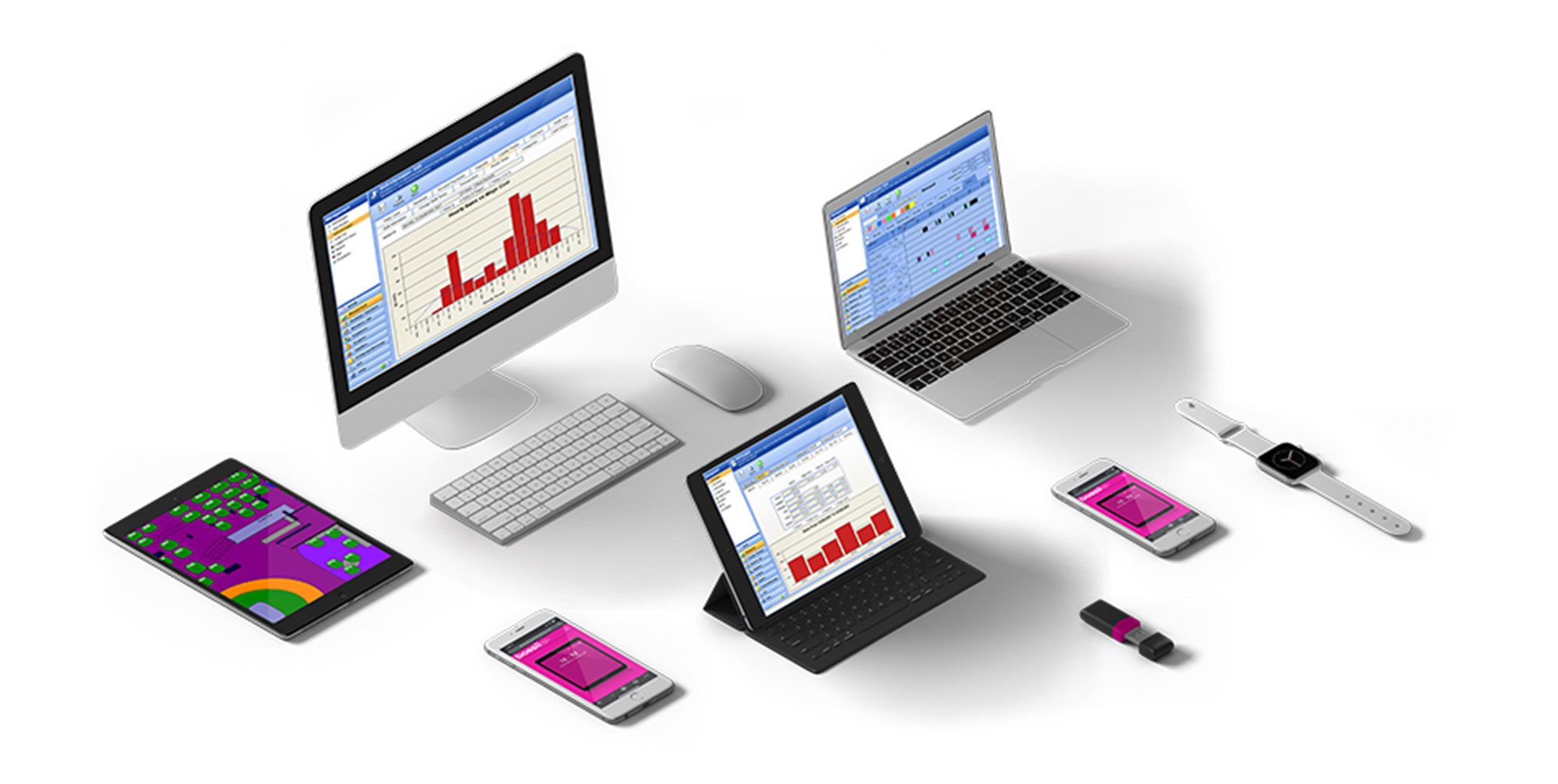Non cloud based POS systems with locally hosted data rely on a data source stored on a PC or Server somewhere on the premise, and tablets or POS terminals access that information through a combination of data cables and wireless connection equipment. This means that for a non cloud based POS system, an internal network (local network) has to be created using cabling to every point (for wired devices) or using wireless access points (for Wi-Fi connected devices).
You can visualise the data networks by comparing them to something more intuitive, like your water connection at home. The data network coverage is the quantity of water pipes in your house, and the data throughput is the volume of water flowing through those pipes. A server/data host is the central point where all the water comes from similarly to your water mains connection. Any kink in the pipe or damage to the pipe means that data cannot get through or will flow a lot slower than normal.

If old cabling is already in place or an installer decides to save you money by putting in low quality cabling, you will end up with an equivalent of small diameter piping unable to flow enough water to all outlets. The performance of all connected devices will be slower when compared to new cabling which would behave like properly sized water pipes. If your cabling is substandard, old or damaged, your devices may not be able to communicate with the server and nothing will work, you may also experience random intermittent failures which are often very difficult to diagnose and fix.
A professional non cloud based POS system provider will review your existing infrastructure and supply recommendations to ensure that the speed and reliability of your internal network will match requirements of the proposed system.
The best practice for hosting your data in a local POS system is to have at least two backups. A primary backup would duplicate your data to a local device, this local backup is fast to create and restore in case of a failure. Most hardware failures can be addressed with an appropriate local backup strategy since local backups can be restored quickly to ensure minimal downtime.
The main purpose of the secondary backup in a non cloud based POS system is to restore your data in case all devices in your venue are damaged or stolen. This backup is often referred to as an offsite backup or a disaster recovery backup and it is usually not as frequent as the local backups since uploading large data sets to the cloud storage is significantly slower.
The quantity of hardware required to support a non cloud based POS system using locally hosted data is usually higher when compared to other options, this is mainly because the site will be effectively completely self-sufficient requiring minimal external infrastructure.
In summary, the data hosted locally options do not require an always on Internet connection to support POS operations as the primary connection method to send data between devices to the local network. The Internet connection is generally only required for automated offsite backups and support as it allows the POS provider to respond quickly using remote access.

In general, if your venue is a Bar, mid to large Restaurant, Hotel, Nightclub or even a large Cafe, local POS systems based on a locally hosted data will be superior as far as the performance and reliability is concerned. Even after the NBN network deployment is completed, outages, instability and overall low speed of the Internet are very common issues creating serious concerns when considering cloud-based systems.
A local area network will communicate at speeds up to 1Gb (1000 mbps), whereas cloud-based systems will be communicating at whatever speed your internet connection will allow, which is usually less than 100 mbps and more often around 40-50 mbps. As you can see here the speed difference is quite considerable and therefore it is still the case that for high volume establishments, data hosted local is still the preference.
If your venue has many product lines, you will also require a higher level of reporting or more specialised functionality. Local POS systems with locally hosted data are therefore often better because of their superior customisation ability which often justifies the higher upfront cost of hardware when compared to the cloud-based solutions.
